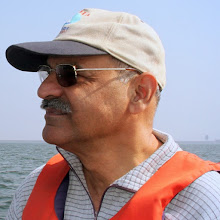
Don't treat army men like ''beggars'', Supreme Court tells Govt
New Delhi , Apr 1 (PTI)
The Supreme Court has slammed the union government for treating army personnel like ''beggars''in respect of emoluments and pension and asked the authorities to adopt a more ''humane approach'' towards those bravely defending the country's borders.
"If a person goes to any part of Delhi and sits for begging, he will earn Rs 1000 every day and you are offering a pittance of Rs 1000 per month for a man who fought for the country in the high altitudes and whose arm was amputated?
"Is this the way you treat those brave army officers? It is unfortunate that you are treating them like beggars," a bench of Justices Markandeya Katju and A K Patnaik said in verbal comments while passing the order.
The apex court passed the order dismissing the Centre's appeal challenging a Punjab and Haryana High Court direction to pay higher pension to C S Siddu, a Short Commissioned Officer whose right arm had to be amputated due to an accident while on duty at the high altitudes on November November 21, 1970.
"The army personnel are bravely defending the country even at the cost of their lives and we feel they should be treated in a better and more humane manner by government authorities, particularly, in respect of their emoluments, pension and other benefits," the bench said in an order.
There was an element of drama in the court when Additional Solicitor General Parag Tripathi pleaded with the court not to use "strong words" in the order like "beggars," "niggardly" "miserly", following which the bench dropped them from the written order.
"We regret to say that the army officers and army men in our country are being treated in a shabby manner by the government. In this case, the respondent,( Sidhu) who was posted at a high altitude field area and met with an accident during discharge of his duties was granted a meagre pension. This is a pittance (about Rs 1000) per month plus D.A."If this is the manner in which the army personnel are treated, it can only be said that it is extremely unfortunate, " the bench however, noted in its written order. After Sidu challenged the government's decision to pay Rs 1000 pension, the High Court directed the government to count the entire period of "full pay commissioned service from June 22, 1968 to June 23, 1978" and give him enhanced pension.
The government however, challenged the direction claiming Sidhu could be treated only as a Short Commissioned Officer as he joined the service on June 22, 1968, and suffered the amputation on November 21, 1970, leading to his discharge from service on June 23, 1978. Hence it argued that he was not entitled to enhanced pension reserved for "fully commissioned officers."




No comments:
Post a Comment